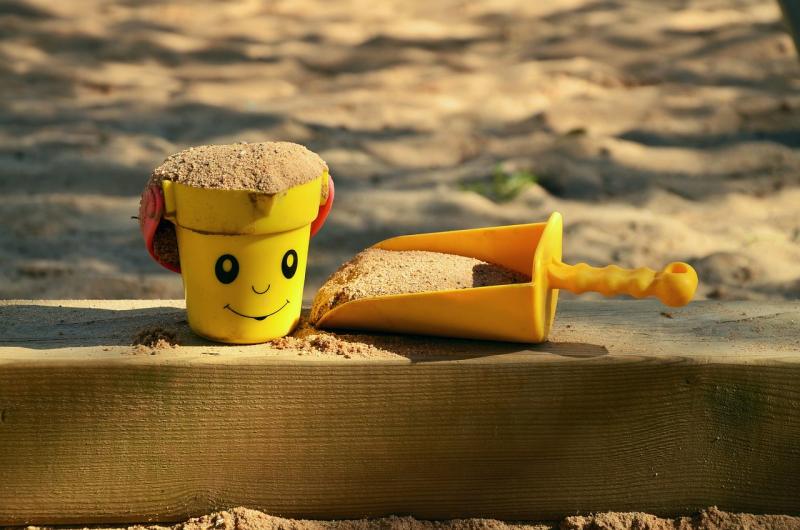Outdoor play is more than just a fun way for children to pass the time. For nursery school-aged children, especially those attending institutions like Walton Montessori, it serves as a vital component of their overall development. In fact, experts agree that time spent playing outdoors is crucial for fostering physical health, boosting creativity, and developing social skills. But why exactly is outdoor play so important for young learners? Let’s take a closer look.
1. Boosting Physical Health
At the core of any nursery school experience should be the development of healthy habits. Physical activity, which is often at the heart of outdoor play, helps young children build strong muscles, improve coordination, and enhance motor skills. Activities such as running, climbing, or even exploring nature allow children to engage in exercise without even realizing it. Outdoor play also plays a significant role in improving cardiovascular health, reducing the risk of obesity, and promoting better sleep patterns—all essential elements for a child's growth.
For example, at a Montessori nursery, outdoor playtime isn’t just an afterthought; it’s integrated into the daily schedule, ensuring that children have regular opportunities to stretch their legs, breathe fresh air, and let their imaginations run wild. The simple act of playing outside supports the development of physical stamina, which is crucial for overall health in the formative years.
2. Fostering Creativity and Imagination
Outdoor environments naturally inspire creativity in children. The endless possibilities found in nature—from jumping over puddles to building forts with sticks—encourage children to use their imaginations and engage in unstructured play. This type of free play is essential for cognitive development, as it encourages problem-solving and innovative thinking.
At Walton Montessori, educators understand the importance of fostering creativity and often use the outdoor environment as a classroom extension. Children are given the opportunity to explore, experiment, and learn from the natural world around them. Whether it’s observing bugs, collecting leaves, or creating art from found objects, outdoor play offers an endless array of learning experiences that can’t be replicated inside a classroom.
3. Supporting Social and Emotional Development
Outdoor play isn’t just about physical or creative development—it also plays a crucial role in helping children develop social and emotional skills. When children play outside, they are often interacting with peers, which helps them learn how to cooperate, share, and resolve conflicts. Outdoor activities, such as group games, team challenges, or even simply playing alongside others, promote communication and collaboration.
Moreover, time spent outdoors allows children to manage their emotions in a more natural setting. The freedom and space to move around often result in children feeling more relaxed, reducing stress and increasing their ability to focus when it's time to return to indoor activities. In this way, outdoor play is a crucial tool in building emotional resilience, a trait that serves children well throughout their lives.
4. Connecting with Nature and the Environment
One of the most significant benefits of outdoor play in nursery schools is its ability to connect children to the natural world. In today’s digital age, many children spend the majority of their time indoors, whether on screens or in structured environments. However, time spent in nature can help children develop a lifelong respect and appreciation for the environment.
Through activities like gardening, nature walks, or simply observing wildlife, children are given opportunities to learn about ecosystems, seasons, and the importance of caring for the planet. In a Montessori nursery, these experiences are often woven into the curriculum, helping children build a deeper understanding of their surroundings and the interconnectedness of all living things.
5. Encouraging Independent Thinking and Risk-Taking
Outdoor play offers children the chance to take risks in a safe, controlled environment. Whether it’s climbing a tree, trying out a new swing, or exploring a new path, outdoor play encourages children to step out of their comfort zones and test their limits. This type of risk-taking is an important aspect of developing self-confidence and independence.
Through outdoor exploration, children learn to assess situations, make decisions, and become more resilient in the face of challenges. This hands-on learning process is vital for building critical thinking skills and fostering a growth mindset, which will benefit them not only in their academic journey but throughout their lives.
Conclusion
Incorporating regular outdoor play into a nursery school curriculum is essential for nurturing a child's physical health, creativity, social skills, and emotional well-being. Whether in a Montessori setting or another educational environment, allowing children to explore the outdoors regularly helps them develop holistically in ways that structured classroom settings cannot replicate. As we continue to recognize the many benefits of outdoor play, it’s clear that nature-based learning should be an integral part of early childhood education, setting the stage for a lifetime of curiosity, health, and learning.

Comments